Search Results
Showing results 1 to 20 of 33

Home Water Audit
Source Institutions
This activity offers learners and their families several ways to raise their awareness together about home water.
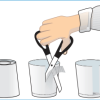
Cleaning Water with Dirt
Source Institutions
In this activity on page 7 of the PDF (Water in Our World), learners make their own water treatment systems for cleaning water.

Water Tower Challenge
Source Institutions
In this activity, learners explore how engineers work to solve the challenges of a society, such as delivering safe drinking water.
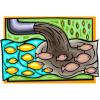
Storm Water Runoff Pollution
Source Institutions
This activity (located on page 8 of the PDF) introduces learners to the concept of Non-point Source Pollution--what happens when rain washes garbage and other pollutants into rivers and lakes.

Heat Capacity: Can't Take the Heat?
Source Institutions
Why is ocean water sometimes the warmest when the average daily air temperature starts to drop? In this activity, learners explore the differing heat capacities of water and air using real data.
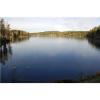
Water Walk
Source Institutions
Learners take a field trip along a local body of water and conduct a visual survey to discover information about local land use and water quality.

Shower Estimation
Source Institutions
In this activity, learners calculate their water usage (in cups and galloons) during an average shower. Learners also chart and analyze water usage during showers in their households.

Solar Water Heater
Learners work in teams to design and build solar water heating devices that mimic those used in residences to capture energy in the form of solar radiation and convert it to thermal energy.

Using Solar Energy
Source Institutions
In this activity, learners discover how solar energy can be used to heat water.
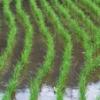
Irrigation Ideas
Source Institutions
In this activity, learners explore how civil engineers solved the challenge of moving water via irrigation.
Finding the Right Crater
Source Institutions
This quick demonstration (on page 11 of PDF) allows learners to understand why scientists think water ice could remain frozen in always-dark craters at the poles of the Moon.

Measure the Pressure: The "Wet" Barometer
Source Institutions
In this activity, learners use simple items to construct a device for indicating air pressure changes.

The Best Dam Simulation Ever
Source Institutions
This online simulation game explores the different consequences of water levels on the Columbia River in the Pacific Northwest.

Mystery Sand
Source Institutions
In this activity, learners play with surprising sand that doesn’t get wet! Learners explore how water behaves differently when it comes in contact with "magic sand" and regular sand.
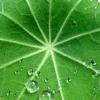
Lotus Leaf Effect
Source Institutions
This is a demonstration about how nature inspires nanotechnology. It is easily adapted into a hands-on activity for an individual or groups.

Working with Watermills
Source Institutions
In this activity, learners explore how watermills have helped harness energy from water through the ages.
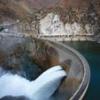
Engineer a Dam
Source Institutions
In this activity, learners explore the function and engineering of dams and how dams have many uses and solve many problems in the world.
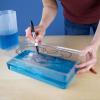
Exploring Earth: Rising Sea
Source Institutions
“Exploring Earth: Rising Sea” is a hands-on activity demonstrating ways to use topographical mapping techniques to track changes in sea level. The activity is connected to current NASA research.
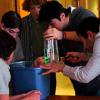
Total Internal Reflection
Source Institutions
In this activity, learners use a laser pointer, empty soda bottle, rubber plug and water to demonstrate total internal reflection.
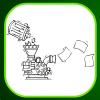
Paper Maker
Source Institutions
Learners make their own paper. They start by shredding old newspaper, clean toilet paper, and clean paper towels.
